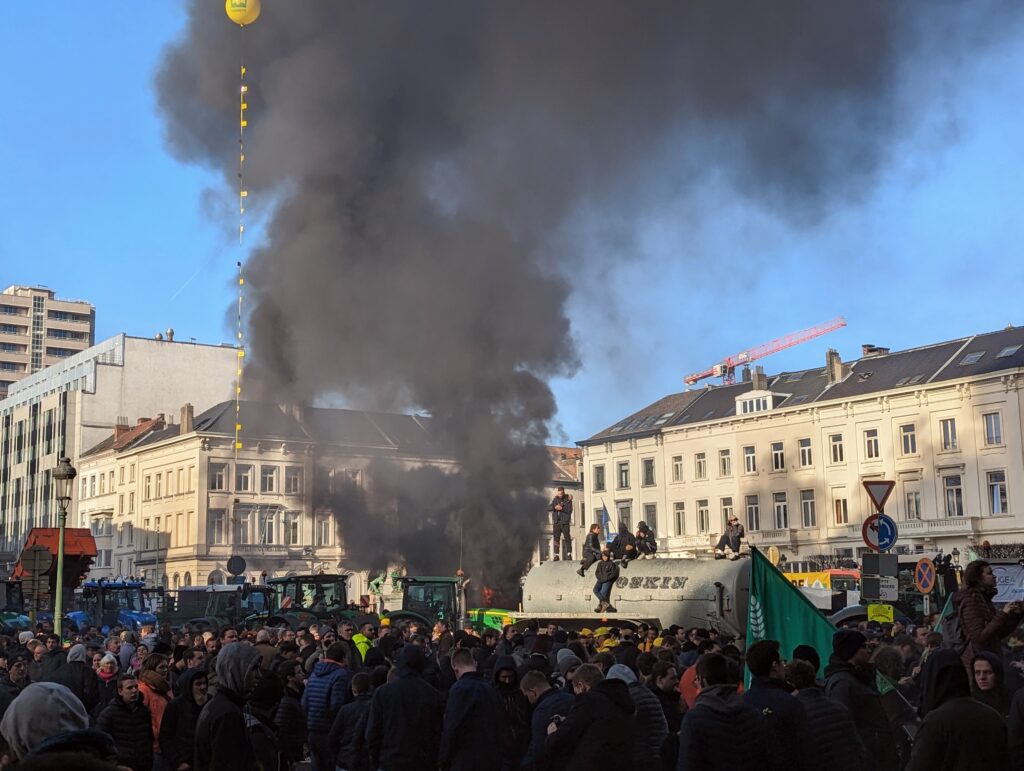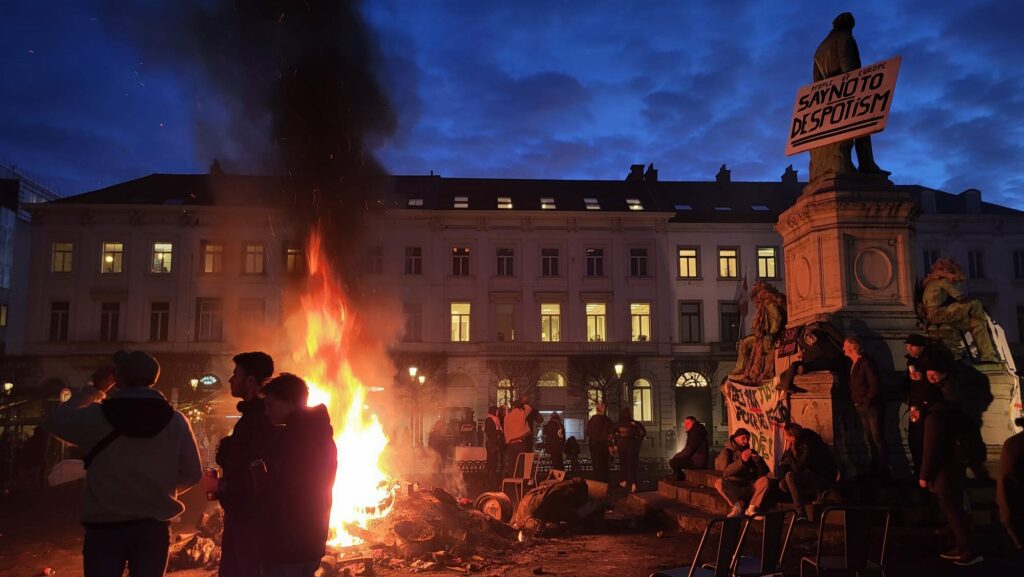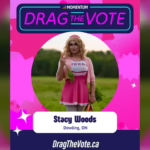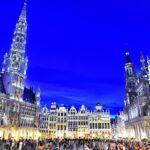International Politics, Politics, Travel Journalism
What I saw at the EU farmer’s protest
On Wednesday night, hundreds of tractors poured into Brussels down the swanky main drag pulling manure spreaders and wagons past luxury shops like Balenciaga and others never before seen through the window of a John Deere cab. The roar of engines, police sirens, and helicopters was ear-splitting. Tractors had been arriving all week, 1,300 in total, setting up camp in the blocks around the European Union buildings. By morning, the entire city centre was gridlocked, traffic was snarled onto side streets, and tractors were packed nose-to-hitch for kilometres. One farmer set up a pen in the middle of the street, laid down straw, and let two bulls out so that the bug-eyed city residents could meet a cow.
The farmers were mostly Belgian, joined by French reinforcements and others from across the continent (a roll call taken from the trailer stage in front of the parliament later that morning under a huge banner reading “Free the Farmers! Stop Free Trade!” had Dutch, German, and Italian farmers bellowing their presence). The crowd had gathered to put a stop to what they call the “spaghetti of regulations to the point of absurdity” slowly strangling their sector and killing their way of life, including mandatory dates for when to sow crops as well as the Nature Restoration Act, which requires setting aside farmland for reforestation. By 10 a.m., the crowd was already simmering and crates of Jupiter beer were emptying rapidly.

The crowd in the Place du Luxembourg did not look like activists. Most wore boots, puffy vests, and toques, with stubbly faces and roughened hands. It is somehow unsettling to see farmers protesting. “Do you know how badly you have to screw up to get people like this into the streets?” one of my colleagues observed. He was right. It must have cost a fortune to drive that vast army of farm equipment into the heart of Brussels—many had to drive for hours. The very nature of the protest highlighted the fact that the farmers believe their backs are against the wall. As one said, it isn’t about one specific regulation; it is the fact that each is designed to tighten the noose just a bit more—slow strangulation by red tape.
The square looked like a war zone. A load of firewood was dumped onto the grass; another trailer had deposited a load of car tires. Huge fires belching pungent pillars of black smoke were burning on the street and next to the John Cockerill monument. A statue from 1871 had been pulled down and lay next to a tire fire, partially blackened. The entrances to the EU were blocked by a wall of barricades, razor wire, and riot police (standing beneath a sign advising the farmers to “USE YOUR VOTE”). Wallonian country boys had been trying out their throwing arms, pitching scores of eggs at the cops and splattering them against the grey walls, which featured a slick yellow varnish of yolk and shattered shells by the day’s end.
A long yellow banner unfurled next to the orange dump loader full of tires summed up the prevailing sentiment: “THIS IS NOT THE EUROPE WE WANT.” The farmers say that the survival of their intergenerational way of life is a stake, and they didn’t show up to lobby and submit petitions—they came to send a message, seething, scared, and spoiling for a fight.

It started around 11 a.m. Glassy-eyed farm kids, flushed with beer and fuelled by the quiet fury of their elders, hurled the first wave of beer bottles over the barricades, sending a spray of broken glass across the paving stones around the police. Yellow beer crates followed; shields went up; there were barked orders and hoarse shouts from the crowd. One ran towards the wire with a tire tied to a rope to pull down the fence; he got hammered into a corner by firehoses, and a second volley of bottles and angry jeers followed. Tires and garbage were piled around the tree in front of parliament and set ablaze; the hoses were redirected, but the rubber burned too hot, and the trunk blackened and began weeping white sap. The wind changed, and several side streets filled with eye-watering smoke, making it impossible to see and difficult to breathe. Watching the older farmers look on as their sons boiled by the barricades, it struck me that the license they were granting the young was another indication of their desperation.
READ THE REST OF THIS ESSAY AT THE EUROPEAN CONSERVATIVE
SUBSCRIBE TO THE SUBSTACK NEWSLETTER FOR REGULAR UPDATES








